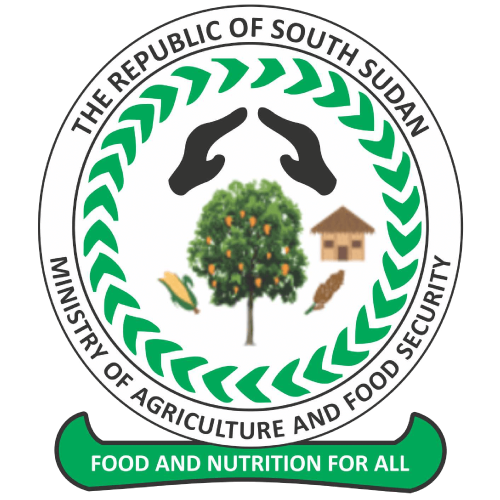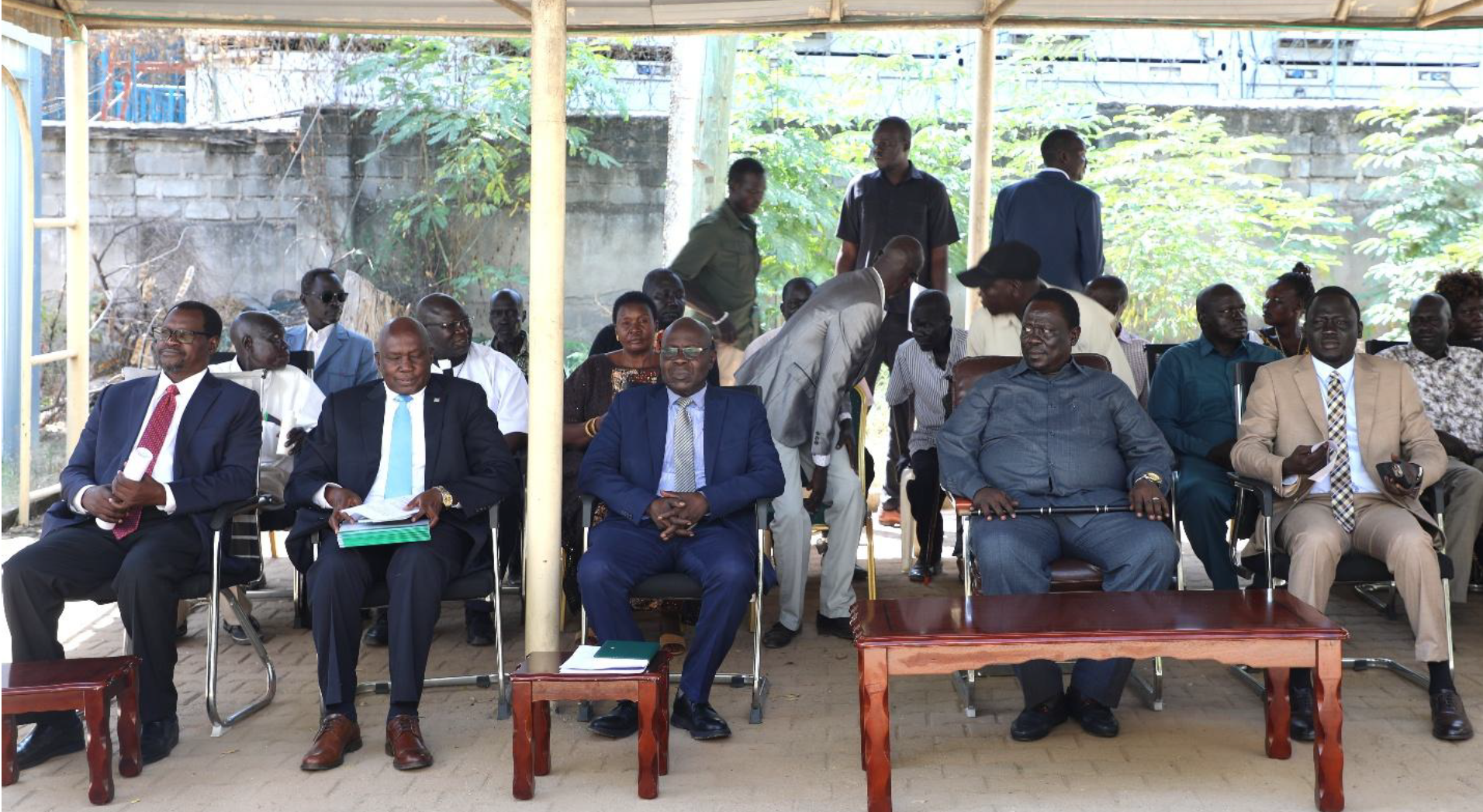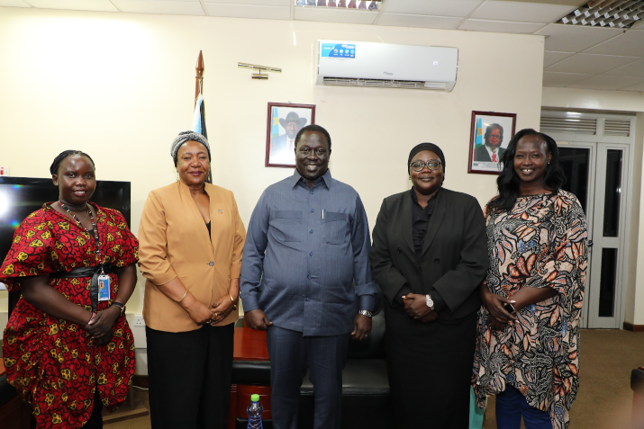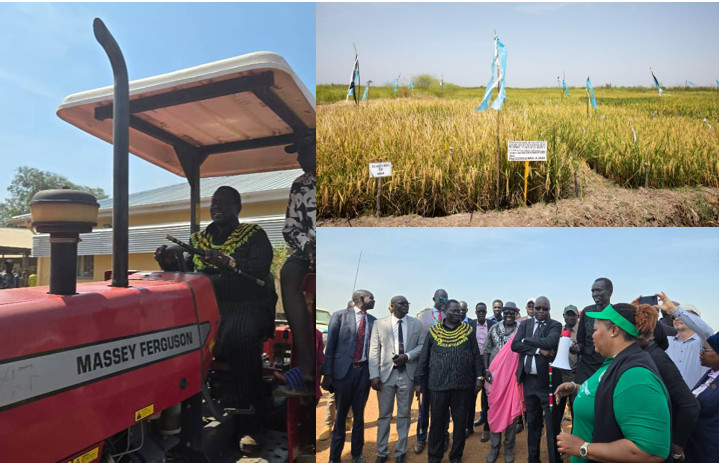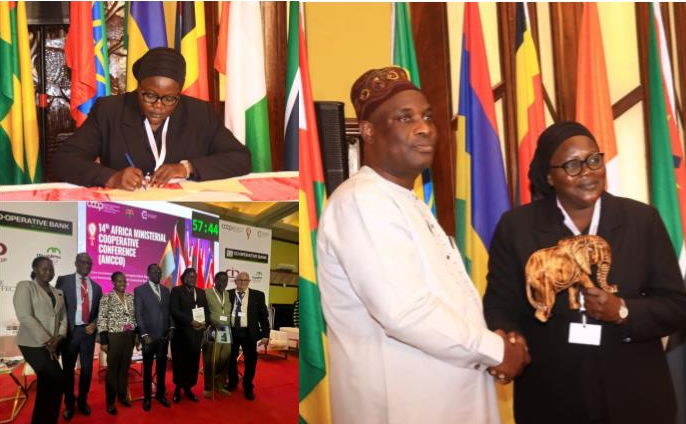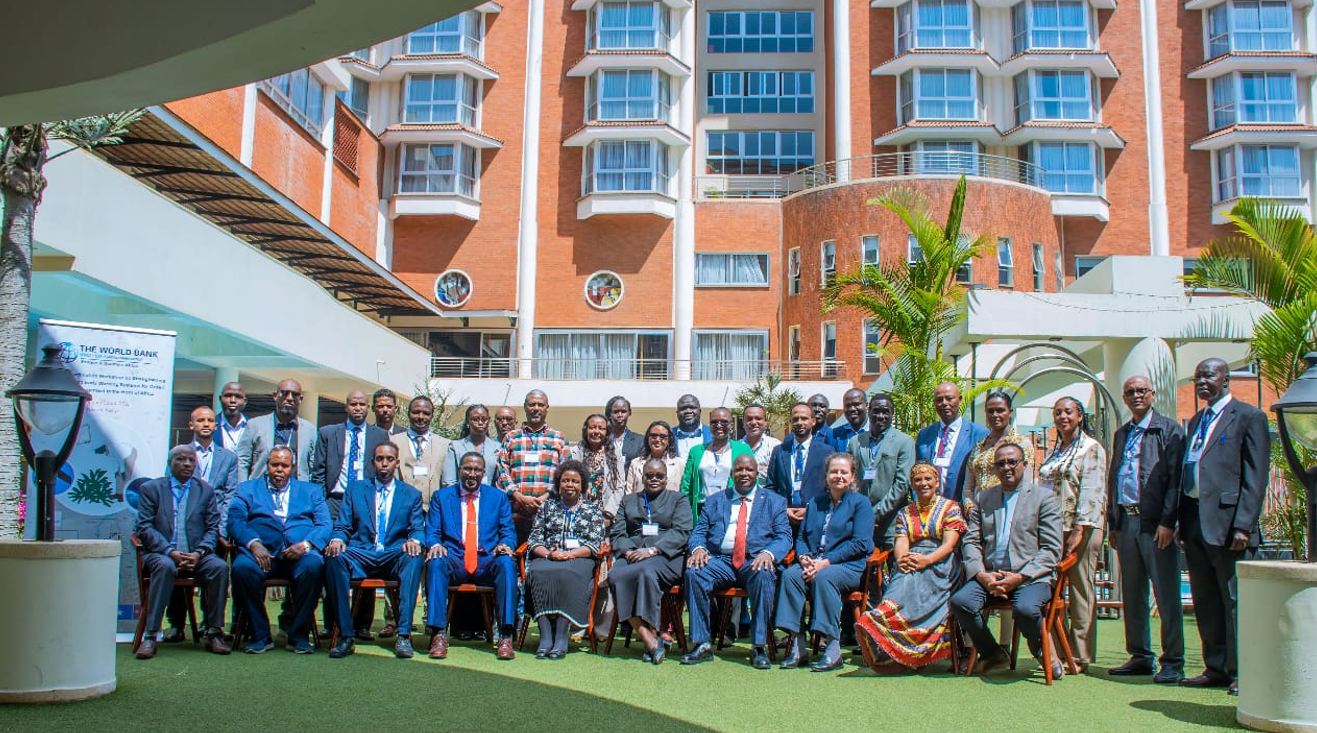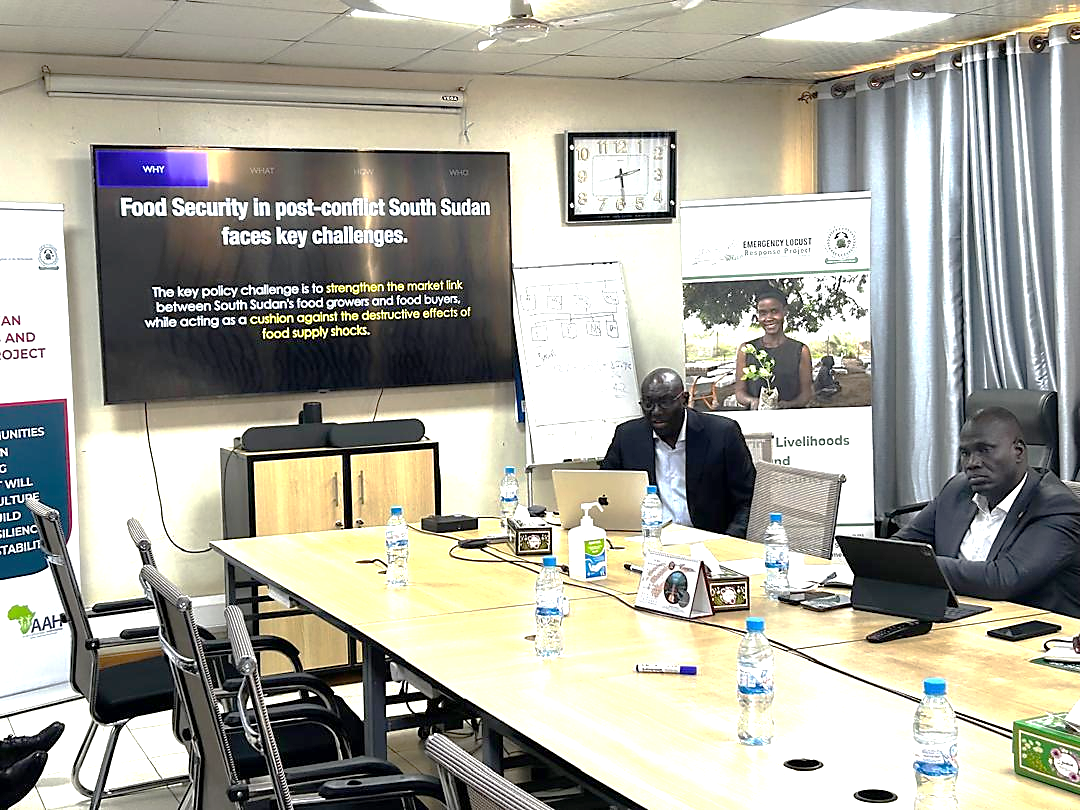
On Thursday July 4, 2024 The Ministry of Agriculture and Food Security (MAFS) convened an introduction meeting with stakeholders to inform them about the cabinet approval of the Minister of Agriculture and Food Security (memo No. RSS/MAFS//I/3, dated 30/08/202) on the establishment of the National Food and Nutrition Security Council (NFNSC) and the National Food Reserve Agency (NFRA), and to solicit their views on implementation of the two key institutions. The Council of Ministers, in its Regular Meeting No. 04/2024 held on Friday, 15h March 2024, approved the proposal of the establishment of the two agencies that will oversee and coordinate policies to secure an adequate and stable food supply to ensure food security in the country.
In her welcome remark, Hon. Nadia Dudi Arop, the MAFS deputy minister, stated that the meeting was held to solicit feedback from the various ministries, government bureaus, and agencies that are stakeholders in the two new bodies, so that when the two institutions are established, each stakeholder institution will be on the same page and actively participate and play their roles in realizing the goals of the two new bodies.
The Food and Nutrition Security Council, in close collaboration with stakeholders, including government agencies, food producers, and community organizations, will oversee and coordinate policies to secure an adequate and stable food supply, while the Food Reserve Agency will operate as the implementation arm of the Food and Nutrition Security Council. Both institutions will form a crucial component in managing a strategic food reserve to ensure food security in the country.
Addressing the meeting after the policy presentation, Hon. Dr. John Ogoto Kanisio, the MAFS Undersecretary for Agriculture Production stated that the food reserve agency is being created in response to severe food insecurity, particular to act as a buffer against the negative consequences of food supply disruptions. To do this, the food reserve agency will mitigate any negative supply challenges by working with local farmers in producing cereals, and with traders through the Ministry of Trade and Industry in procuring cereals in bulk and storing them in reserve depots, only releasing them into the market at affordable prices during emergencies to avoid market exploitation when emergencies occur.
In his remarks, Hon. Amb. Joseph Muon, the South Sudanese minister of Trade and Industry, expressed his gratitude for the meeting’s timing due to threats of hunger as a result of looming floods, and emphasized the importance of the collaboration in addressing critical food needs in country, noting that food security can only be achieved through the collaborative efforts of all relevant institutions including the ministries of agriculture and food security, and the ministry of trade and industry. He noted that in the past, the challenges of food insecurity were not adequately addressed because the relevant institutions operated in isolation. This made it difficult to coordinate critical efforts from the areas of strength of the various ministries. He stated that the establishment of the two institutions will bring about the necessary synergies to address the coordination gaps that have previously hindered food security initiatives.
The minister of the interior, Hon. Agenlina Teny, acknowledged the significance of the food reserve agency and the concept behind it in her statement. She pointed that food security is equally important as physical security and must be treated with the same level of priority. According to Hon. Teny, a recent security sector review analysis revealed that food insecurity and poverty, which have a high correlation coefficient to illiteracy, are at an all-time high as physical security. Additionally, the threats of food insecurity pose higher security risks than other forms of insecurity in the country. As a result, it is in the national security interest to resolve the issues of illiteracy, poverty, and food insecurity. She concluded that the food reserve agency will be instrumental in addressing food security challenges once it is operational. However, other government agencies that are concerned with physical security including her ministry must collaborate and contribute to this form of insecurity that is not visible, treating it as a serious form of insecurity, like physical insecurity.
The minister of water resources and irrigation, Hon. Pal Mai lauded the ministry of agriculture for the bold step in setting up the Food and Nutrition Council and the National Food Reserve Agency, saying that food security is equally important as physical security although people tend to take the later more seriously than the former. He also argued that once operational the two agencies will contribute to a reduction in crime because investment in food production provides gainful employment for young people thereby reducing their involvement in crime related activities.
On his part, the minister for roads and bridges, Hon. Mijak Mijok welcomed the approval of the two agencies and lauded the minister of agriculture and food security for her passionate commitment for addressing food insecurity in the country. He said that the country has all the capacity: human capital, land and water resources to engage in agriculture production, however there is a need to put the right institutions in place and the establishment of the two agencies will provide that. He ended his remark by arguing that addressing food insecurity is a war that must be done collectively, a war against hunger that must involve everyone from the president of the republic to the ministers and down to the lay people on the ground because hunger and poverty are the biggest enemies of any country. Hon. Josephine Lagu Yanga, the Minister for Agriculture and Food Security, in her closing remark echoed Amb. Joseph Muon’s sentiment that issues of food security have in the recent past been addressed in silos by the different stakeholders and this resulted in the lack of coordination at the national level to bring about any meaningful achievements despite there being good policy documents in place to scale up agriculture production to ensure food security in the country. She mentioned existence of the Comprehensive Agriculture Master Plan (CAMP), which incorporates key agriculture and irrigation plans that could transform the food security sector but not much has yielded because the intuitions that are tasked tow implement it didn’t work closely enough. The National Nutrition Security Council and the National Food Reserve Agency will bridge that gap and bring all the stakeholder to address food insecurity as one bloc. She expressed her profound gratitude to the cabinet for approving the proposal for the establishment of the two institutions, acknowledging the strong support for agriculture in the cabinet. She thanked all invited guests who turned up for the meeting for their active participation and input and promised them that their views will be considered.
